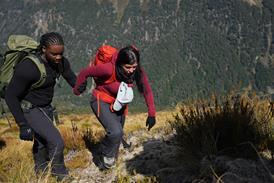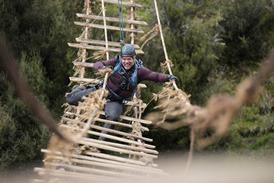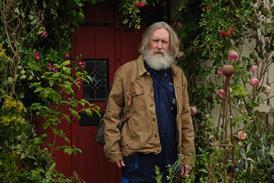The BBC will achieve the world’s first live Ultra HD (4K) production over IP at next month’s Commonwealth Games in Glasgow.
Unlike the broadcaster’s behind-closed-doors experiments of Ultra HD transmission of three World Cup matches, screens in Glasgow will allow the public to watch some of the games in 4K.
The Commonwealth Games trials will also allow the BBC to introduce a 4K live IP production element for the first time, using a suite of technologies dubbed ‘IP Studio’.
BBC Research & Development, which is leading the trials, will produce a series of Ultra HD outside broadcasts and conduct a separate test taking the live multicamera feed from trackside to a viewing environment.
Just as with the World Cup trials, which begin on Saturday, there will be DTT and IP distribution of the 4K coverage, in conjunction with Arqiva and BT, to the BBC and partner sites in London and Salford.
“The concept is to introduce software and IP into the overall chain so it can be used alongside existing technology like DTT,” said BBC R&D controller Matthew Postgate.
“IP will enable us to be more flexible with services we already produce, and introduce new kinds in the longer term.”
This greater flexibility of infrastructure will enable the BBC to deliver “a 4K service to people around high-volume, concurrent events over DTT and, equally, 4K on-demand over IP,” he added.
The BBC’s experimental UHD shows will be produced from the opening ceremony on July 23 and from each day of events at The Hydro arena.
4K signals at frame rates of 55p from four Sony F55 cameras will be taken straight into specially configured PCs containing video processing cards for conversion into IP.
The data will then be fed over Virgin Media’s dark fibre network to an IP-operated production gallery built by the BBC at the Glasgow Science Centre.
Within the exhibition centre, members of the public will be invited to see the results encoded in H.264 and HEVC, the proposed compression format to the home.
A sound mixer and commentator for the output will be based in London so that production collaboration over IP can be tested across several different locations.
“One of the benefits of live IP over a national network is that production teams could be distributed differently,” said principal technician on the project Phil Tudor.
“IP changes our capacity for tackling an event and means we can produce more content, more economically.”
To facilitate the multi-site workflow, data will be transported from Glasgow to BBC R&D in London and to a second gallery at MediaCityUK over the Joint Academic Network at 100Gb/s. “This is not a complete system,” stressed Tudor.
“It is research designed to feed into the BBC’s future broadcast strategy and standardisation efforts [of video over IP being made by the European Broadcasting Union and others]. You need these sorts of live field trials to prove whether ideas work.”


























No comments yet